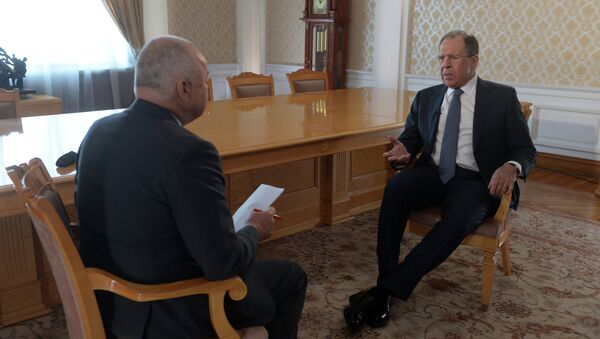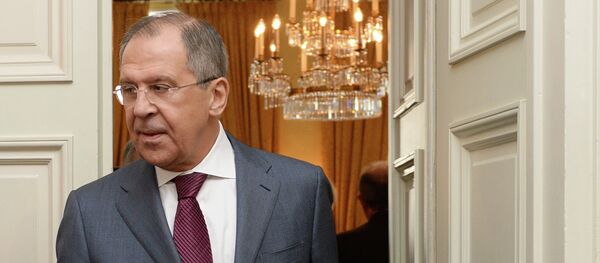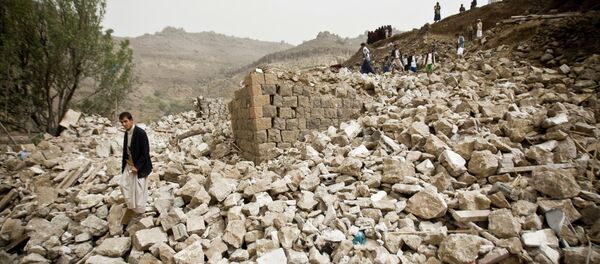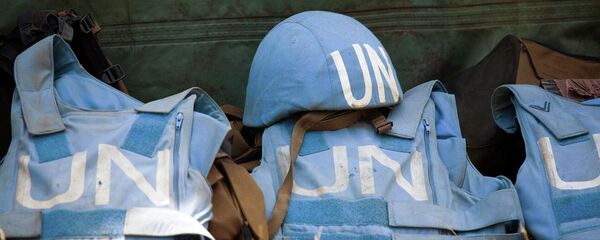Iran to Become Transparent After Lausanne Deal
Last week, Lavrov was one of the negotiators at the talks between the P5+1 group of world powers and Iran on the country's nuclear energy program. The sides reached a framework agreement after Tehran agreed to cut back uranium enrichment and decrease the number of centrifuges.
The United States and the United Nations, in return, promised to lift sanctions imposed on Iran over its nuclear activities. The move irked top officials in the Israeli government, who claimed the deal posed a threat to Israel's survival. The Russian foreign minister countered that claim, insisting Iran would become a transparent country following the agreement.
"Iran will be the most controlled, the most inspected if those principles agreed on in Lausanne are translated into the language of practical agreements, and this language can only be mutual, so we have to listen to what our American colleagues have to say regarding sanctions relief," Lavrov said.
Russia's top diplomat added that Iran "was ready to fulfill its obligations in the non-proliferation of the nuclear weapons agreement."
Talks Needed to End Yemen Crisis
"Of course, we were a bit disappointed, to say the least, by the fact that the operation was launched even without any consultations either in the [UN] Security Council or via bilateral channels," Lavrov said.
Lavrov emphasized that the anti-Houthi coalition should have first received international backing before launching airstrikes on Yemen.
He also called on all conflicting sides in Yemen to declare a ceasefire and begin negotiations.
"We are very concerned by the situation in Yemen since it is creating a new rift, and a very deep one, between Sunnis and Shiites. And all the geopolitical situation in the Gulf region revolves around this confrontation," Lavrov said.
West Must Influence Kiev Over Peace Deal
Lavrov urged the Western leaders to try to persuade Kiev to follow the Minsk II ceasefire agreements, reached in the Belarusian capital in February.
Russia is part of the Normandy Quartet, which also includes France, Germany and Ukraine, and helped broker the peace deal to end the year-long conflict in eastern Ukraine.
"We do hope and work with Berlin, France and even try to work with Washington to get them to make the government in Kiev understand and live up to the agreements this time," Lavrov said.
The Russian foreign minister expressed the hope that Kiev's call to deploy peacekeepers in east Ukraine's Donbas was not a tactical trick to divert attention from the implementation of the Minsk II deal.
"Sometimes there are cases during negotiations when one of the sides wants to buy time or win time, and then a new idea is introduced, the one that has never been discussed with anybody, and it starts distracting from the work on what has already been agreed upon," Lavrov said.
US Hinders Other Country's Relationships With Russia
"All the partners that I meet wherever I go, all the people that come to us, my colleagues, they all feel the effect of either the American ambassador, or someone lower-ranked who addresses them with the corresponding requirement, or some emissary of Washington traveling in the region and warning them," Lavrov added.
Lavrov specifically mentioned US ambassador to the Czech Republic Andrew Schapiro, who stated it would be "awkward" if Czech President Milos Zeman would travel to Moscow for the Victory Day celebrations.
Conversely, Lavrov said that Russia has reached an "unprecedentedly good level" of relations with China.
Chinese President Xi Jinping is set to head comprehensive Russia-China talks during his visit to Moscow to attend the May 9 Victory Day celebrations.




